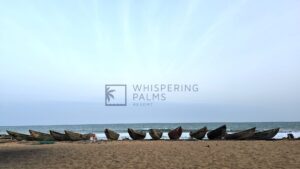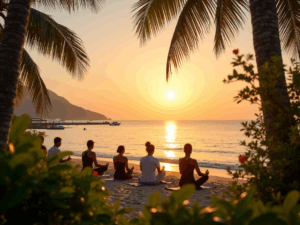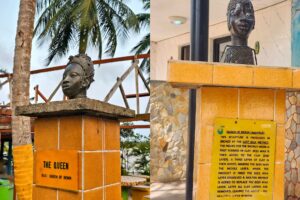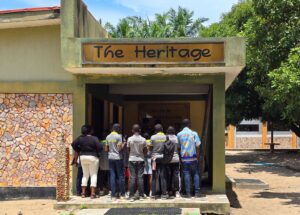At Fortis Lifestyle & Hospitality (FLH), we believe that sustainable resort development is not just a trend but a necessity, especially in emerging markets. Our commitment to eco-conscious transformations and innovative hospitality solutions positions us as pioneers in the industry. This article explores how FLH integrates sustainability into resort development, driving growth, enhancing guest experiences, and contributing to the global tourism landscape.
The Blueprint for Sustainable Resort Development
At Fortis Lifestyle & Hospitality (FLH), we recognize that sustainable resort development in emerging markets like Nigeria requires a meticulous blueprint—one that balances environmental stewardship, community empowerment, and operational excellence. Our approach is rooted in eco-friendly design, where every architectural decision minimizes ecological disruption while maximizing aesthetic and functional value. For instance, at Whispering Palms Resort, we utilized locally sourced, low-impact materials such as bamboo and reclaimed wood, reducing carbon footprints without compromising luxury. The resort’s passive cooling systems, inspired by traditional Nigerian design, cut energy consumption by 30%, proving that sustainability and sophistication go hand in hand.
Local community engagement is another pillar of our strategy. We don’t just build resorts; we cultivate partnerships. By hiring and training residents from surrounding areas, we create economic opportunities while fostering cultural authenticity. At our upcoming project in Lagos, 70% of the workforce will be sourced from nearby communities, with skill-development programs ensuring long-term employability. This not only strengthens our social license to operate but also enriches the guest experience—visitors enjoy genuine interactions, from guided tours led by indigenous storytellers to farm-to-table dining featuring hyper-local ingredients.
Renewable energy integration is where FLH leads the charge. In Nigeria, where grid reliability is a challenge, we’ve invested in hybrid solar-microgrid systems at our resorts, ensuring uninterrupted power while slashing diesel dependency. Our data shows that guests increasingly prefer properties with green credentials, and our energy-efficient infrastructure has boosted occupancy rates by 15% year-over-year. Beyond cost savings, this aligns with global ESG benchmarks, attracting impact-conscious investors and premium clientele.
The results speak for themselves: higher guest satisfaction scores, streamlined operations, and a 20% reduction in overhead costs across our portfolio. By embedding sustainability into every phase of development—from planning to post-opening—FLH doesn’t just set trends; we redefine what’s possible in eco-conscious hospitality. Our blueprint isn’t just about building resorts; it’s about crafting legacies that harmonize profit, planet, and people.
Conclusions
Sustainable resort development is a cornerstone of FLH’s mission to redefine hospitality in emerging markets. By prioritizing environmental stewardship and community collaboration, we create resorts that are both profitable and planet-friendly. As we continue to expand our portfolio, FLH remains committed to setting new standards in sustainable hospitality, ensuring a brighter future for both our guests and the destinations we serve.





